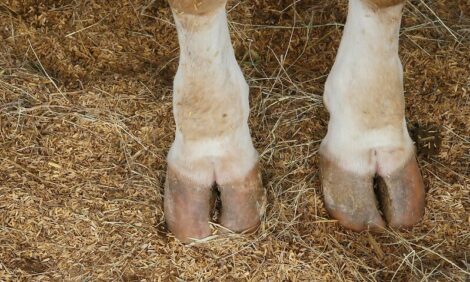



Researchers Examine Antimicrobial Resistance Issues When Treating Brachyspira
CANADA - Research underway at the University of Saskatchewan will provide information that will help swine veterinarians prescribe the most effective treatments for specific strains of Brachyspira, writes Bruce Cochrane.Certain species of Brachyspira cause such infections as swine dysentery, muco hemorrhagic diarrhea or porcine intestinal spirochetosis in pigs.
As part of research being conducted on behalf of Swine Innovation Porc scientists with the University of Saskatchewan in partnership with Novartis Animal Health are working to determine which antimicrobials will be most effective for treating specific strains of Brachyspira.
Dr Joe Rubin, an assistant professor in veterinary microbiology with the University of Saskatchewan, says this project is in response to the emergence of Brachyspira hampsonii and concerns related to antimicrobial resistance.
Dr Joe Rubin-University of Saskatchewan:
For Brachyspira there hasn't been a lot of research into antimicrobial susceptibility and what drugs might or might not be the most effective.
Our intent for this work is to really develop some new methods and improve our diagnostic processes further so that we can provide better information to Canadian swine veterinarians and I suppose swine veterinarians around the world.
We're hoping to have this project wrapped up and fully integrated into our diagnostic service in the next two or three years.
I think the most obvious beneficiaries of this work will really be the producers.
The ability to give their veterinarians specific treatment recommendations will allow them to effectively and most economically treat affected herds.
There'll obviously be some animal welfare benefits so the pigs are going to be getting some good out of this.
And, because we'll be able to provide treatment recommendations, it'll avoid unnecessary inappropriate antimicrobial usage and so there'll be a societal benefit of decreased selection pressure for antimicrobial resistance which is of course a very important issue.
Dr Rubin expects the first results from this work this coming summer or fall.






